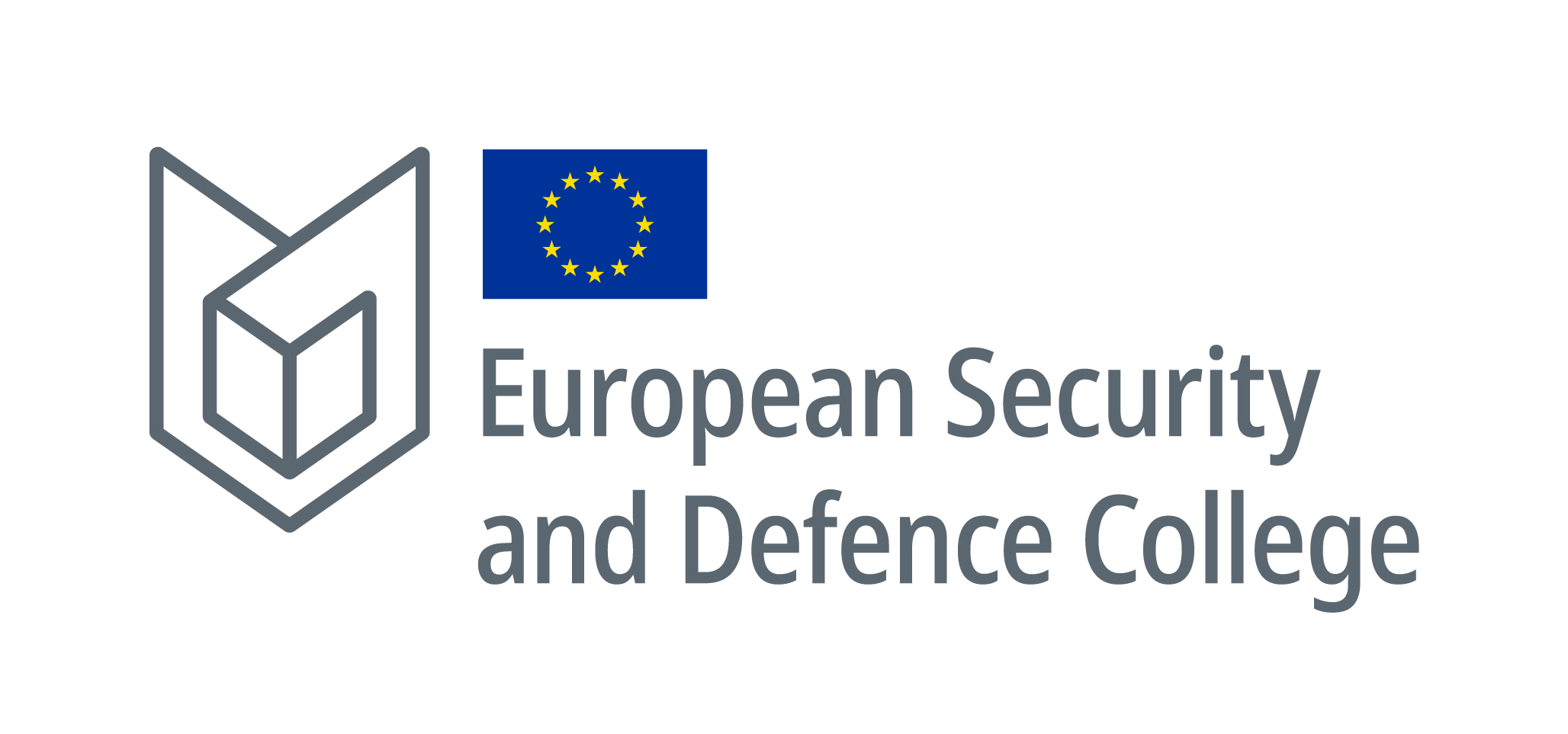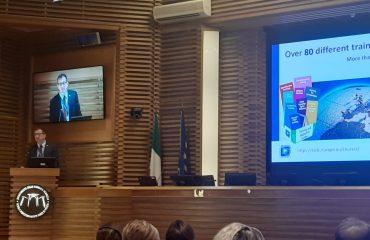Critical Infrastructures Protection Course – Module 1
Emerging Technologies Transforming Critical Infrastructure Protection
(ESDC Activity 2020-21/255-1/1)
Bucharest, Romania, 8-10 December 2020
 Between 8 and 10 December 2020, under the aegis of the ESDC and with the support of the Joint Research Centre, the National Institute for Research and Development in Informatics ICI Bucharest (Romania) organised Module 1 of the Critical Infrastructure Protection pilot activity, entitled ‘Emerging Technologies Transforming Critical Infrastructure Protection’.
The focus of the course was on Critical Infrastructure Protection (CIP), a conceptual framework for promoting resilience and the protection of vital infrastructure, key assets and key resources in a challenging and rapidly changing security environment. Given the pursuit of an ‘ever closer Union’, including in energy, digital and transport, and the spectre of hybrid threats, it is important to train mid- and high-level representatives of EU institutions, national authorities and public bodies / private companies with CIP involvement in the latest developments in the field. Speakers from academia, civil society, national and European institutions, and private companies presented a variety of topics and viewpoints to the participants, who benefitted from the diversity of the presenters’ backgrounds and training.
The course took place entirely online due to the pandemic restrictions and health concerns. It hosted 58 participants from 10 EU Member States (France, Spain, Greece, Italy, Romania, Portugal, Cyprus, the Czech Republic, Poland and Finland), with a variety of backgrounds and areas of activity. Despite the challenging schedule and material, the course enjoyed very high levels of participant retention, attesting to the interest in the subject and the success of the organising team in keeping the attention of participants. One participant noted that the course was “[v]ery well scheduled, according to the objectives and with experts in the whole framework of CIP features.”
ICI Bucharest has also obtained important feedback that it will use to fine-tune future events and optimise the delivery of information and the scheduling of interactive moments in order to maximise the benefit to participants. Several participants combined extremely positive feedback with suggestions for better spacing of lectures in order to avoid fatigue: “The organisation was good and the moderators showed competency and full participation style. I would suggest for the next course to shape the lesson schedule with mandatory breaks between the lessons (5-10 minutes).”
The ‘Critical Infrastructures Protection Course – Module 1’ included several experimental features with a view to taking advantage of the possibilities offered by the online format and compensating for its inherent limitations in terms of interactivity and networking.
The first innovative approach was the addition of pre-recorded lectures to the ILIAS platform, as supplementary material for the students. In this way, the organisers developed a concept whereby certain important ancillary topics that could not be addressed during the live sessions would be handled through additional lectures to be reviewed independently by course participants. These sessions provided significant added value to the participants by addressing topics such as CIP and climate change, CIP and pandemics, a CIP perspective on the Belt and Road Initiative and more. The participant feedback was quite positive, which indicates that this is a useful format for supplementary material, in addition to the online library of relevant documents. One participant even requested that future courses should have a session specifically dedicated to discussing questions raised by the pre-recorded lectures.
Between 8 and 10 December 2020, under the aegis of the ESDC and with the support of the Joint Research Centre, the National Institute for Research and Development in Informatics ICI Bucharest (Romania) organised Module 1 of the Critical Infrastructure Protection pilot activity, entitled ‘Emerging Technologies Transforming Critical Infrastructure Protection’.
The focus of the course was on Critical Infrastructure Protection (CIP), a conceptual framework for promoting resilience and the protection of vital infrastructure, key assets and key resources in a challenging and rapidly changing security environment. Given the pursuit of an ‘ever closer Union’, including in energy, digital and transport, and the spectre of hybrid threats, it is important to train mid- and high-level representatives of EU institutions, national authorities and public bodies / private companies with CIP involvement in the latest developments in the field. Speakers from academia, civil society, national and European institutions, and private companies presented a variety of topics and viewpoints to the participants, who benefitted from the diversity of the presenters’ backgrounds and training.
The course took place entirely online due to the pandemic restrictions and health concerns. It hosted 58 participants from 10 EU Member States (France, Spain, Greece, Italy, Romania, Portugal, Cyprus, the Czech Republic, Poland and Finland), with a variety of backgrounds and areas of activity. Despite the challenging schedule and material, the course enjoyed very high levels of participant retention, attesting to the interest in the subject and the success of the organising team in keeping the attention of participants. One participant noted that the course was “[v]ery well scheduled, according to the objectives and with experts in the whole framework of CIP features.”
ICI Bucharest has also obtained important feedback that it will use to fine-tune future events and optimise the delivery of information and the scheduling of interactive moments in order to maximise the benefit to participants. Several participants combined extremely positive feedback with suggestions for better spacing of lectures in order to avoid fatigue: “The organisation was good and the moderators showed competency and full participation style. I would suggest for the next course to shape the lesson schedule with mandatory breaks between the lessons (5-10 minutes).”
The ‘Critical Infrastructures Protection Course – Module 1’ included several experimental features with a view to taking advantage of the possibilities offered by the online format and compensating for its inherent limitations in terms of interactivity and networking.
The first innovative approach was the addition of pre-recorded lectures to the ILIAS platform, as supplementary material for the students. In this way, the organisers developed a concept whereby certain important ancillary topics that could not be addressed during the live sessions would be handled through additional lectures to be reviewed independently by course participants. These sessions provided significant added value to the participants by addressing topics such as CIP and climate change, CIP and pandemics, a CIP perspective on the Belt and Road Initiative and more. The participant feedback was quite positive, which indicates that this is a useful format for supplementary material, in addition to the online library of relevant documents. One participant even requested that future courses should have a session specifically dedicated to discussing questions raised by the pre-recorded lectures.
 The second one was the organisation of a tabletop exercise on the Poseidon Platform of the Joint Research Centre, to illustrate and reinforce the previous lessons on the CIP theory and framework, as well as increase the students’ familiarity with the Poseidon Platform. The scenario created and the way it was run meant that the tabletop exercise could be used far earlier than usual in training students in the field, and with a much lower overhead in terms of preparation and training time.
The second one was the organisation of a tabletop exercise on the Poseidon Platform of the Joint Research Centre, to illustrate and reinforce the previous lessons on the CIP theory and framework, as well as increase the students’ familiarity with the Poseidon Platform. The scenario created and the way it was run meant that the tabletop exercise could be used far earlier than usual in training students in the field, and with a much lower overhead in terms of preparation and training time.
 The logic of the course was also to prepare the students for the second module of the course, currently scheduled for 23-25 February 2021. Module 2 will be organised by the Joint Research Centre (JRC-SPR), the Digital Security Authority (DSA) – National CSIRT-CY of Cyprus and ICI Bucharest, and will feature much more interaction, debate and a more involved and complex tabletop exercise. The second module will benefit from students’ accumulated expertise on CIP concepts, notions and tools, as well as their familiarity with the Poseidon Platform. The feedback of the participants and their suggestions will be integrated into module 2 in order to increase the overall user experience, generate added value and facilitate the best possible assimilation of the knowledge, competences and skills imparted by the challenging coursework.
We can confidently state that the ‘Critical Infrastructures Protection Course – Module 1: Emerging Technologies Transforming Critical Infrastructure Protection’ was a complete success, receiving an overwhelmingly positive reception, as well as constructive feedback for future improvements on how the course is run.
The logic of the course was also to prepare the students for the second module of the course, currently scheduled for 23-25 February 2021. Module 2 will be organised by the Joint Research Centre (JRC-SPR), the Digital Security Authority (DSA) – National CSIRT-CY of Cyprus and ICI Bucharest, and will feature much more interaction, debate and a more involved and complex tabletop exercise. The second module will benefit from students’ accumulated expertise on CIP concepts, notions and tools, as well as their familiarity with the Poseidon Platform. The feedback of the participants and their suggestions will be integrated into module 2 in order to increase the overall user experience, generate added value and facilitate the best possible assimilation of the knowledge, competences and skills imparted by the challenging coursework.
We can confidently state that the ‘Critical Infrastructures Protection Course – Module 1: Emerging Technologies Transforming Critical Infrastructure Protection’ was a complete success, receiving an overwhelmingly positive reception, as well as constructive feedback for future improvements on how the course is run.




